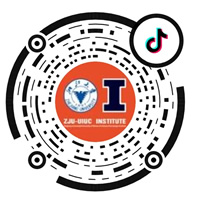Key research focuses:
The Center for Research On Sustainable Systems (CROSS) is an international and interdisciplinary research platform currently under development by a group of faculty members of the ZJUI. The research focuses include both macro systems such as global ecological environment and the micro systems such as indoor environment and green buildings. The research objectives are to explore the occurrence mechanisms and loss control of natural and man-made disasters, as well as life-cycle design and operation of sustainable systems.
Current research projects are in following directions.
Research directions:
1.Bio-based materials and structures

The research will challenge the implementation of the ecological bio-based resources such as bamboo into modern construction, through fundamental material studies, digital design and manufacture. The goal is to contribute to reduce the growing ecological burden on the earth system due to over-development and to improve living environment.
Environment and urban infrastructure

The development of future transport systems for mega-cities is an opportunity to achieve many of the United Nation Sustainable Development Goals. The expansion of conventional mass-transit systems alone is not capable of keeping up with the rapid growth in demand. Moreover, it fails to provide inclusivity, as it is often not possible or convenient for the elderly or people with disabilities to use conventional public transport. Therefore, it is of strategical importance to find innovative solutions to complement traditional public transport modes.
Water Resource Systems Engineering
The outcome of this project is expected to improve the coordination between hydropower and all competing uses. These improvements will be the result of implementation of promising water management alternatives for reconciling those water uses, including modified operations for hydropower reservoirs that can better meet the requirements of other uses without any significant negative impact on the energy sector.
Health monitoring

Based on Dr Li’s research in time-domain Bayesian Operational modal analysis (OMA), the following contents will be investigated: (1) develop a fast-variational Bayes algorithm to enhance its efficiency; (2) remove spurious modes using sparse Bayesian learning for an automated implementation; (3) extend the study to the case of multi-setup OMA of large-span bridges.
2.Key members

3.Typical research projects









